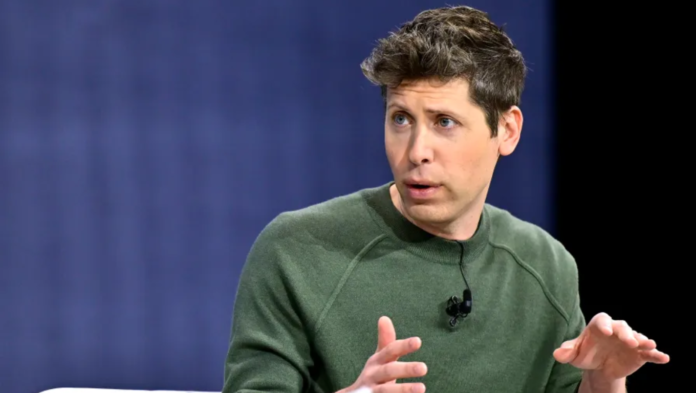Less than a day after OpenAI launched its new AI image generator, social media is overflowing with dreamy visuals in the unmistakable style of Studio Ghibli. The internet is suddenly populated with whimsical versions of Elon Musk, the Lord of the Rings universe, and even Donald Trump all reimagined through the nostalgic lens of Japanese animation.
Users are uploading their own photos and asking ChatGPT to transform them into illustrations inspired by iconic studios. The result is a flood of Ghibli-style content that feels like it was drawn straight from a Miyazaki storyboard. Even Sam Altman, OpenAI’s CEO, has updated his profile picture to a Ghibli-themed image that was most likely generated using this very tool.
This wave of AI-generated artwork follows closely behind a similar moment sparked by Google’s Gemini Flash model earlier this month, which stirred controversy after users began using it to remove watermarks from images. Like OpenAI’s latest offering, it showcases just how far and fast generative AI has come.
But the excitement is matched by growing concern. These tools can now mimic the visual identity of legendary creators and studios with just a few words typed into a prompt. And that raises serious questions about copyright, ownership, and what it means to borrow a style in the age of artificial intelligence.
At the center of the issue is a legal gray area. According to Evan Brown, an intellectual property attorney at Neal & McDevitt, style itself is not protected by copyright. That means simply generating something that looks like a Studio Ghibli film is not illegal on its own.
However, Brown points out the murkier side of this innovation. It is entirely possible, he says, that OpenAI trained its model using countless frames from Ghibli films to achieve such accurate results. If true, that could spark further legal scrutiny particularly as courts are still trying to decide whether training AI on copyrighted material falls under fair use or crosses the line into infringement.
That exact legal battle is already unfolding. Major publishers, including The New York Times, have filed lawsuits against OpenAI, alleging that its models were trained on proprietary content without permission or compensation. Similar claims have also been brought against Meta, Midjourney, and other major players in the AI space.
This puts the industry in a tricky position. On one hand, companies like OpenAI claim their models are designed to avoid mimicking the work of individual, living artists. But they do allow replication of broader studio styles and therein lies the controversy.
Studio Ghibli is not just a company. It’s the creative legacy of living artists, including its legendary co-founder Hayao Miyazaki. So while the AI might avoid directly copying an individual, it may still be echoing the work of creators whose artistic fingerprints define an entire brand.
Despite these concerns, users have pushed ahead with creativity. The Ghibli wave is just one example. People are also generating Pixar-inspired wedding photos, portraits in the style of Dr. Seuss, and much more. The tools are powerful, playful, and incredibly easy to use. But beneath the fun lies a deeper unease about who owns what in the digital age.
To see how far the tech has come, we tested several image generators including Google Gemini, xAI’s Grok, and Playground.ai. All of them delivered some level of Studio Ghibli-style results. But it was OpenAI’s image generator that stood out. The expressions, the backgrounds, the color gradients everything felt closer to the real thing than any other platform.
The broader implication is clear. We are living in a moment where the boundary between tribute and theft is thinner than ever. AI tools are making it simple for anyone to channel the spirit of legendary creatives without ever crediting or compensating them.
For artists, studios, and legal experts, this raises hard questions about what constitutes originality and what protections are still relevant in an AI-driven world. The technology is dazzling, no doubt. But it’s also moving faster than the legal frameworks designed to contain it.
This viral moment is just one in a growing series of cultural clashes between AI innovation and intellectual property rights. As users flood their feeds with fantasy-inspired portraits and nostalgic recreations, the conversation around ownership, ethics, and artistic credit will only intensify.












